#jonathan goes from following advice to not confide in his wife to practically giving her the kiss up the arm 'cara mia' treatment.
Text
Would you like to see all of Jonathan's speaking lines from the moment he joins the rest of the crew (September 30) till he witnesses the aftermath of Dracula's attack on Mina (October 3)? Well, here they are:
"I answer for Mina and myself," he said.
+
"May I come?" said Harker.
Both on his first day there, after spending most of his time working on documents with Mina. The former, when agreeing to the let's-hunt-Dracula pact, and the latter when asking to go along to visit Renfield. Your mileage may vary on whether he even did that, since Seward and Renfield and Stoker both forgot him entirely during said visit.
That's it. Oh, of course he talks more than that, but it's all described dialogue typically involved a larger group and even then is pretty brief. He suggests the importance of Renfield before the meeting. He leads the way through Carfax on Van Helsing's request, freezes up and has a minor panic attack when he thinks he sees Dracula, but is pretty silent throughout. The next day he has a brief chat with Van Helsing and hunts boxes. The next day, says hi and bye to Seward, then heads out to spend the whole day chasing leads again. When he gets back, the boys all have a music night and Jonathan reads his journal to them to keep them up on his efforts.
I'm not suggesting that Jonathan is totally silent or anything. But there's perhaps a reason Seward initially describes him as a "quiet, business-like gentleman." He's reserved for the most part and focused on the task at hand. Determined but not overzealous in any way that stands out; spends a lot of time off on his own or hanging back quietly.
All this to say... It must have been quite a shock to see quiet, paper-trail hunting Jonathan Harker abruptly start spitting out lines like:
"It cannot have gone too far yet. Guard her while I look for him!"
"May God judge me by my deserts, and punish me with more bitter suffering than even this hour, if by any act or will of mine anything ever come between us!"
"Then let us come at once, we are wasting the precious, precious time!" + "We shall break in if need be."
"I care for nothing now, except to wipe out this brute from the face of creation. I would sell my soul to do it!"
"May God give him into my hand just for long enough to destroy that earthly life of him which we are aiming at. If beyond it I could send his soul for ever and ever to burning hell I would do it!"
All of a sudden Jonathan is a big damn romantic hero. He is making huge declarations left and right, he is ready to hunt Dracula down and kill him in his pajamas, he is rushing and raging and swearing to God and cursing Dracula's soul to hell and offering to trade away his own. All this not to even mention attacking him with a knife and climbing out a window rather than waste any time with stairs.
Jonathan, who has always been pretty mild-mannered around this group to the point they almost find it hard to believe he could have been the same one to write about his experiences in the castle, is now in full on Addams family mode, public displays of affection and murder attempts included. And it's not like this situation isn't understandably dire as hell, an easy recipe for pushing someone past the limits of their composure. They all know that too.
But I just find it really fun to imagine the recalibration going on in their heads. Knowing intellectually the kind of stuff he did to stay alive all that time ago is a little different from watching him rampage around like he did today, and Seward definitely seemed to be experiencing a shift in his perception of Jonathan's manly fervor to say the least.
#dracula daily#truly the 'oh! he'a a bit fucked up actually' experience in real time#jonathan goes from following advice to not confide in his wife to practically giving her the kiss up the arm 'cara mia' treatment.#he very abruptly gives no shit about decorum or manners or the opinion of anyone else on earth but mina#it's Something to witness i imagine#dracula meta#my meta#jonathan harker
767 notes
·
View notes
Text
Internal Conflict: Five Conflicting Traits of a Likable Hero.
1. Flaws and Virtues
I’m sure you’ve heard this before, but characters without flaws are boring. This does not, as many unfortunate souls take it to mean, imply that good, kind, or benevolent characters are boring: it just means that without any weaknesses for you to poke at, they tend to be bland-faced wish fulfillment on the part of the author, with a tendency to just sit there without contributing much to the plot.
For any character to be successful, they need to have a proportionate amount of flaws and virtues.
Let’s take a look at Stranger Things, for example, which is practically a smorgasbord of flawed, lovable sweethearts.
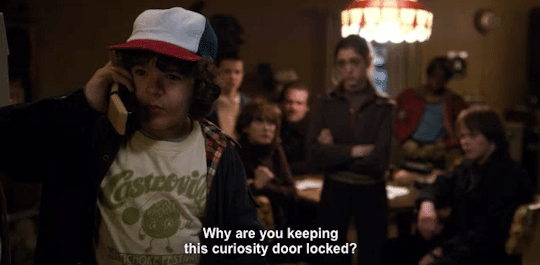
We have Joyce Byers, who is strung out and unstable, yet tirelessly works to save her son, even when all conventional logic says he’s dead; We have Officer Hopper, who is drunken and occasionally callous, yet ultimately is responsible for saving the boy’s life; We have Jonathan, who is introspective and loving, but occasionally a bit of a creeper, and Nancy, who is outwardly shallow but proves herself to be a strong and determined character. Even Steve, who would conventionally be the popular jerk who gets his comeuppance, isn’t beyond redemption.
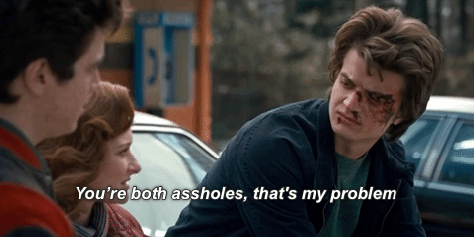
And of course, we have my beloved Eleven, who’s possibly the closest thing Stranger Things has to a “quintessential” heroine. She’s the show’s most powerful character, as well as one of the most courageous. However, she is also the show’s largest source of conflict, as it was her powers that released the Demogorgon to begin with.
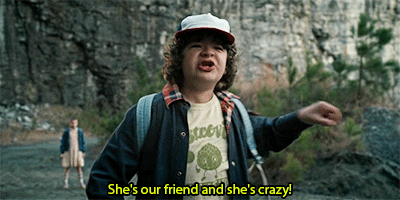
Would Eleven be a better character if this had never happened? Would Stranger Things be a better show? No, because if this had never happened, Stranger Things wouldn’t even be a show. Or if it was, it would just be about a bunch of cute kids sitting around and playing Dungeons and Dragons in a relatively peaceful town.
A character’s flaws and mistakes are intended to drive the plotline, and if they didn’t have them, there probably wouldn’t even be a plot.
So don’t be a mouth-breather: give your good, kind characters some difficult qualities, and give your villains a few sympathetic ones. Your work will thank you for it.
2. Charisma and Vulnerability
Supernatural has its flaws, but likable leads are not one of them. Fans will go to the grave defending their favorite character, consuming and producing more character-driven, fan-created content than most other TV shows’ followings put together.
So how do we inspire this kind of devotion with our own characters? Well, for starters, let’s take a look at one of Supernatural’s most quintessentially well-liked characters: Dean Winchester.
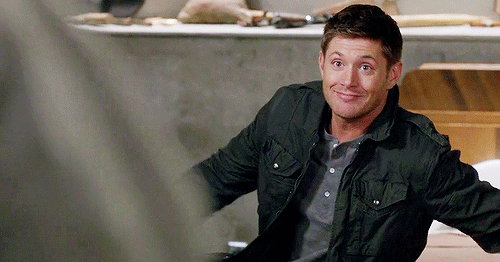
From the get-go, we see that Dean has charisma: he’s confident, cocky, attractive, and skilled at what he does. But these qualities could just as easily make him annoying and obnoxious if they weren’t counterbalanced with an equal dose of emotional vulnerability.

As the show progresses, we see that Dean cares deeply about the people around him, particularly his younger brother, to the point of sacrificing himself so that he can live. He goes through long periods of physical and psychological anguish for his benefit (though by all means, don’t feel obligated to send your main character to Hell for forty years), and the aftermath is depicted in painful detail.
Moreover, in spite of his outward bravado, we learn he doesn’t particularly like himself, doesn’t consider himself worthy of happiness or a fulfilling life, and of course, we have the Single Man Tear(TM).
So yeah, make your characters beautiful, cocky, sex gods. Give them swagger. Just, y’know. Hurt them in equal measure. Torture them. Give them insecurities. Make them cry.
Just whatever you do, let them be openly bisexual. Subtext is so last season.
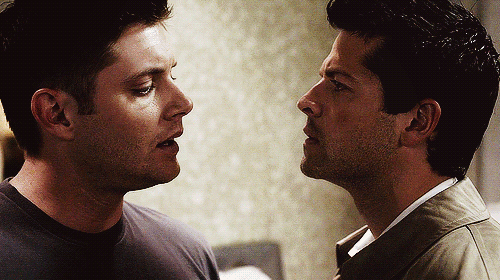
3. Goals For the Future and Regrets From the Past
Let’s take a look at Shadow Moon from American Gods. (For now, I’ll have to be relegate myself to examples from the book, because I haven’t had the chance to watch the amazing looking TV show.)
Right off the bat, we learn that Shadow has done three years in prison for a crime he may or may not have actually committed. (We learn later that he actually did commit the crime, but that it was only in response to being wronged by the true perpetrators.)
He’s still suffering the consequences of his actions when we meet him, and arguably, for the most of the book: because he’s in prison, his wife has an affair (I still maintain that Laura could have resisted the temptation to be adulterous if she felt like it, but that’s not the issue here) and is killed while mid-coital with his best friend.
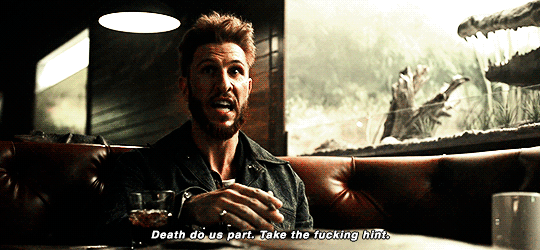
Shadow is haunted by this for the rest of the book, to the point at which it bothers him more than the supernatural happenings surrounding him.

Even before that, the more we learn about Shadow’s past, the more we learn about the challenges he faced: he was bullied as a child, considered to be “just a big, dumb guy” as an adult, and is still wrongfully pursued for crimes he was only circumstantially involved in.
But these difficulties make the reader empathize with Shadow, and care about what happens to him. We root for Shadow as he tags along with the mysterious and alternatively peckish and charismatic Wednesday, and as he continuously pursues a means to permanently bring Laura back to life.
He has past traumas, present challenges, and at least one goal that propels him towards the future. It also helps that he’s three-dimensional, well-written, and as of now, portrayed by an incredibly attractive actor.

Of course (SPOILER ALERT), Shadow never does succeed in fully resurrecting Laura, ultimately allowing her to rest instead, but that doesn’t make the resolution any less satisfying.
Which leads to my next example...
4. Failure and Success
You remember in Zootopia, when Judy Hopps decides she wants to be cop and her family and town immediately and unanimously endorse her efforts? Or hey, do you remember Harry Potter’s idyllic childhood with his kindhearted, adoptive family? Oh! Or in the X-Files, when Agent Mulder presents overwhelming evidence of extraterrestrial life in the first episode and is immediately given a promotion? No?

Yeah, me neither. And there’s a reason for this: ff your hero gets what they want the entire time, it will be a boring, two-dimensional fantasy that no one will want to read.
A good story is not about the character getting what they want. A good story is about the character’s efforts and their journey. The destination they reach could be something far removed from what they originally thought they wanted, and could be no less (if not more so) satisfying because of it.
Let’s look at Toy Story 3, for example: throughout the entire movie, Woody’s goal is to get his friends back to their longtime owner, Andy, so that they can accompany him to college. He fails miserably. None of his friends believe that Andy was trying to put them in the attic, insisting that his intent was to throw them away. He is briefly separated from them as he is usurped by a cute little girl and his friends are left at a tyrannical daycare center, but with time and effort, they’re reunited, Woody is proven right, and things seem to be back on track.

Do his efforts pay off? Yes -- just not in the way he expected them to. At the end of the movie, a college-bound Andy gives the toys away to a new owner who will play with them more than he will, and they say goodbye. Is the payoff bittersweet? Undoubtedly. It made me cry like a little bitch in front of my young siblings. But it’s also undoubtedly satisfying.
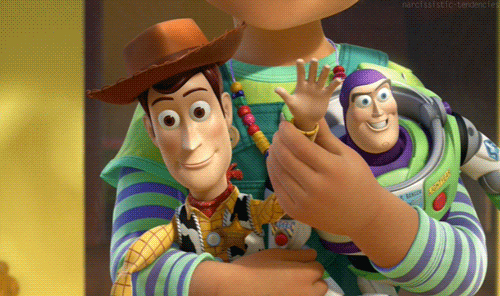
So let your characters struggle. Let them fail. And let them not always get what they want, so long as they get what they need.
5. Loving and Being Loved by Others
Take a look back at this list, and all the characters on it: a gaggle of small town kids and flawed adults, demon-busting underwear models, an ex-con and his dead wife, and a bunch of sentient toys. What do they have in common? Aside from the fact that they’re all well-loved heroes of their own stories, not much.
But one common element they all share is they all have people they care about, and in turn, have people who care about them.
This allows readers and viewers to empathize with them possibly more than any of the other qualities I’ve listed thus far, as none of it means anything without the simple demonstration of human connection.
Let’s take a look at everyone’s favorite caped crusader, for example: Batman in the cartoons and the comics is an easy to love character, whereas in the most recent movies (excluding the splendid Lego Batman Movie), not so much.
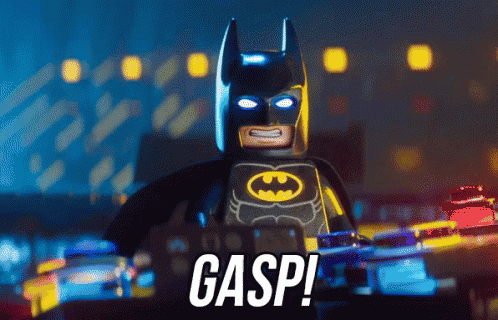
Why is this? In all adaptions, he’s the same mentally unstable, traumatized genius in a bat suit. In all adaptions, he demonstrates all the qualities I listed before this: he has flaws and virtues, charisma and vulnerability, regrets from the past and goals for the future, and usually proportionate amounts of failure and success.
What makes the animated and comic book version so much more attractive than his big screen counterpart is the fact that he does one thing right that all live action adaptions is that he has connections and emotional dependencies on other people.
He’s unabashed in caring for Alfred, Batgirl, and all the Robins, and yes, he extends compassion and sympathy to the villains as well, helping Harley Quinn to ultimately escape a toxic and abusive relationship, consoling Baby Doll, and staying with a child psychic with godlike powers until she died.

Cartoon Batman is not afraid to care about others. He has a support network of people who care about him, and that’s his greatest strength. The DC CU’s ever darker, grittier, and more isolated borderline sociopath is failing because he lacks these things.
And it’s also one of the reasons that the Lego Batman Movie remains so awesome.

God willing, I will be publishing fresh writing tips every week, so be sure to follow my blog and stay tuned for future advice and observations!
#the author speaks#writing#writing tips#writing advice#stranger things#supernatural#american gods#toy story#batman#dean winchester#shadow moon#laura moon#dc cinematic universe#not my gifs
4K notes
·
View notes